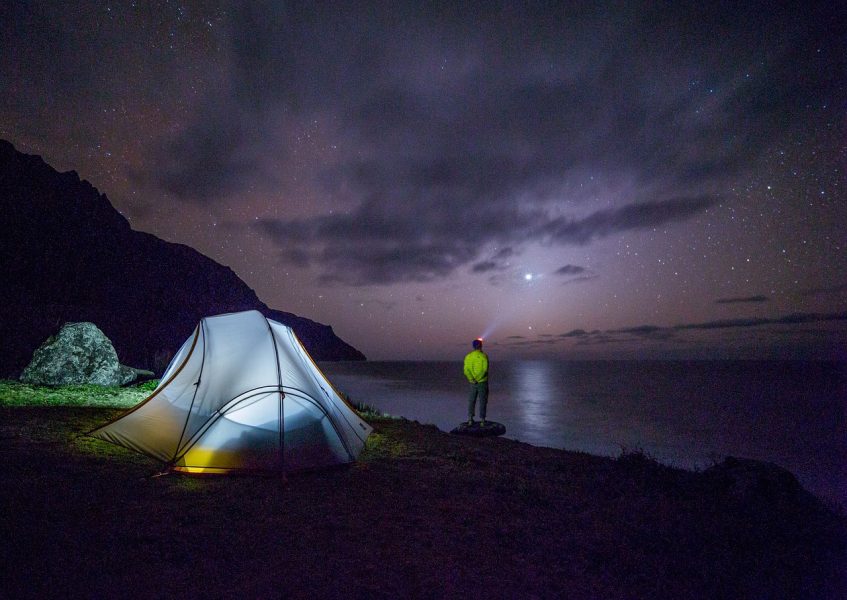
There are certain advantages to hiking at night time as opposed to during the day. When the sun drops, the crowds tend to disappear and so does the sometimes unbearable daytime heat.
If you’re lucky enough to head out on a clear night, it is easy to get lost gazing into the depths of the night sky. The stars really are as endless as they seem and there is something utterly mesmerizing about looking at the moon.
With the increased darkness comes reduced vision for you. This forces you to heighten your other sense and you suddenly become far more aware of the noises and smells around you. You’ll hear all sorts of strange noises you wouldn’t otherwise hear during the day.
That said, night hiking comes with its own set of dangers and you need to prepare yourself in a certain way.
Visibility
Night Vision
At risk of stating the obvious, at night it can get pretty dark. This is nice, however, it is hard to see any obstacles or potential hazards. You should learn to rely on your illumination (headlamps, torches etc.) only as much as you need to so that your natural night vision isn’t impaired. If you’re constantly using a harsh, bright light then you will find it hard to see in the dark naturally.
If you have used a bright light or just stepped out from somewhere brightly lit, it can take your eyes up to 45 minutes to adjust fully to the darkness. That’s why you should try to avoid looking at any bright lights when you’re on the trail, like any other hiker’s torches or your own.
Also, did you know that your peripheral vision is far better at seeing things in the dark? When you’re out at night, try looking just to the side of an object and see if you can see it more clearly.
Illumination Etiquette
When you’re hiking at night, part of the excitement is the darkness. Be considerate of other hikers and dim/switch off your lights when you are passing them. Furthermore, make sure that you don’t shine it in their faces to see who they are! This will completely ruin their natural night vision for a good while. Try not to startle wildlife with any bright lights; they’re out at night for a reason!
About the Hike
At night it becomes more important to hike in a larger group. You know how the saying goes; safety in numbers. Apart from driving yourself insane with all the unfamiliar noises, hiking alone at night can be dangerous for a variety of reasons and isn’t generally recommended.
If you’re new to night-hiking, pick a trail you’re familiar with. Landscapes completely transform when the lights go off and it is incredibly easy to lose your bearings. Even if you choose a trail you know well during the day, you’d be surprised how lost you can feel on it at night.
Because your vision is reduced, you should make an extra effort to pack and organize your backpack carefully. Try finding something which you stuffed at the bottom of your bag when it’s pitch black. Put important items in easy-to-reach places.

 Your Privacy Choices
Your Privacy Choices
 The
The